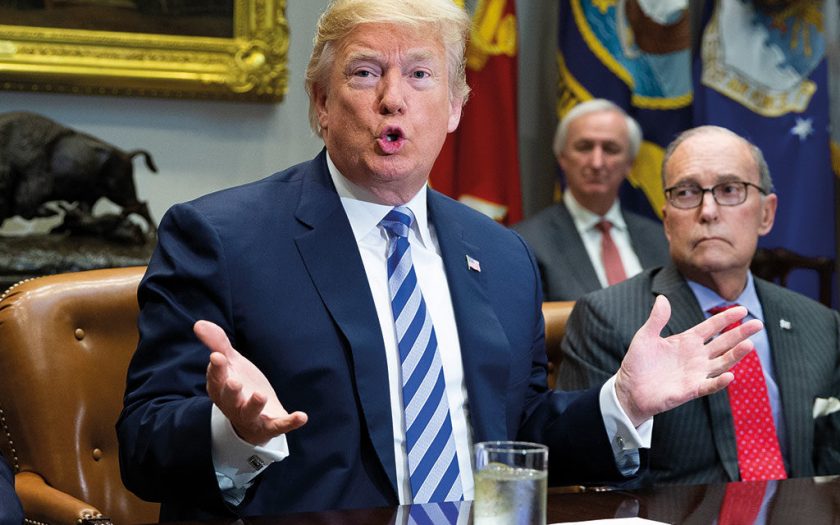
The US president has granted a surprise reprieve for ZTE. Matthew Partridge reports.
Donald Trump’s trade policies are not just “an economically illiterate brand of extreme mercantilism which trample casually over international law”, says the Financial Times. They are also capricious. In his latest surprise twist, Trump “has signalled a reprieve” for ZTE, the Chinese company banned from sourcing vital components from US companies. The ban followed ZTE’s alleged violation of a deal in which it agreed to pay $1.2bn for evading US sanctions on Iran and North Korea. The move is especially odd because it contradicts the advice of top US intelligence officials, who have repeatedly warned that ZTE’s products are a “threat to national security”.
Reasons to be merciful
ZTE is also exactly the kind of company Trump purports to loathe, says Daniel Drezner in The Washington Post: a “bad actor benefiting from national champion status in China but violating US laws and threatening US national security”.
By issuing a pardon, Trump is going “way, way out on a limb”. So why did he do it? Trump’s decision may be surprising, but there is a case to be made that ZTE is too big to fail as “thousands of jobs in both countries depend on its survival further down the high-tech supply chain”, says CNN’s Stephen Collinson. Arguably, the US should also be using “every bargaining chip it has to secure a win in the deepening trade confrontation with Beijing” – pardoning ZTE “could yield significant concessions”. Trade talks between China and the US are ongoing in Washington this week.
There’s also the fact that were ZTE to fail, thousands of China’s top engineers would be “unemployed and ripe for the picking by China’s vast technology sector, including network equipment makers, surveillance companies and the military”, says Tim Culpan on Bloomberg. Alternatively, they could “seed dozens of start-ups”, or ZTE could be “de-facto nationalised via a Team China strategy”. Both would challenge American interests.
But maybe “none of this” was on Trump’s mind, and he was instead thinking of his forthcoming meeting with Kim Jong-un in Singapore. If there’s any chance of Pyongyang giving up nuclear weapons, “Kim will need reassurance from Beijing that both his person and his country will be safe”. At such a time Trump can’t afford to be seen to be “messing with Chinese strategic interests, including the pursuit of technology independence”.
The deal won’t help the US
But the ZTE deal cannot be viewed as a win for the US, says Nathaniel Taplin in The Wall Street Journal. In return for “clemency on ZTE”, Beijing withdrew its agricultural tariff threats and gave the green light for Qualcomm’s NXP acquisition. However, the US administration’s jumpiness about agricultural tariffs ahead of the mid-term elections will validate Beijing’s “strategy” of going after Trump’s political base, “weakening the administration’s hand in future negotiations”. Extracting “meaningful concessions” that will benefit a wide array of businesses, rather than just a few, will now “become more difficult”.